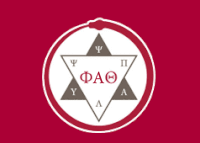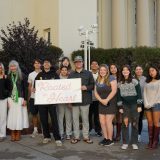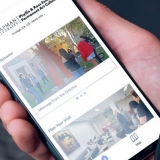A Celebration of History Student Research
September 21, 2021
The award winning, student-run e-journal, Voces Novae: A Chapman University Historical Review is celebrating its thirteenth anniversary this year with topics ranging from how Christianity shaped England in World War I to Native Hawaiian and Japanese American Discourse over Hawaiian Statehood.
Out of twelve papers submitted, five were published by the Alpha Mu Gamma Chapter of Phi Alpha Theta (History Honors Society). 
“We had a variety of different topics that were considered in this year’s publication,” said Senior Voces Novae Editor Delaynie Voortman (‘21, BA History; ‘22 MA in Curriculum and Instruction). “Many of them were specifically written about American institutions but some topics ventured onto the European continent.”
“Nicole Saito wrote an excellent thesis on Hawaiian Statehood, specifically the political clash between Japanese Americans and Native Hawaiians during this time,” said George Tajonera, Senior Voces Novae Editor (‘21, BA History; minor in Secondary Education, Music Technology; ‘22 MA in Curriculum and Instruction). “This story stuck out to me because the topic is often brushed over in school classrooms in California. Saito offers an insight into the complexity of horizontal oppression between ethnic minority groups,” he said. (Read Saito’s thesis).
Due to the COVID-19 pandemic, the Voces Novae team carried out the entirety of the editing process virtually. “Even editors’ meetings, which had always been done in person,” said Dr. Shira Klein, Associate Professor of History and Voces Novae faculty advisor. “ It’s amazing how the results are no less impressive than in previous years.”
“With the aid of technology on our side, our VN team collaborated and edited for weeks via Google Drive. Luckily, our editorial board did an excellent job in delegating and organizing their teams of editors. This edition would not have been possible without our general editors’ proactivity and vigor,” Tajonera said.
The e-journal is a wonderful opportunity for students to publish their work, which can be added to their CV and shown to potential employers. “It’s also a concrete step towards grad school for those interested in that route. It’s a chance to read what their peers are researching, and a great way of thinking about what it takes to formulate a persuasive argument,” said Klein.


